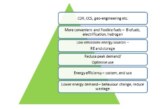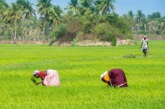Dr Nagesh Kumar is currently Chief Economist and Director, ESCAP South and South-West Asia Office, New Delhi. He assumed this position in December 2011 has played vital role in infusing new vitality in the UN-ESCAP and South-West Asia Office through his dynamism and farsightedness. Under his dynamic leadership, the UN-ESCAP and South-West Asia Office has made rapid strides in diverse fields.
Prior to taking over the present position, he served as Chief Economist and Director of the Macroeconomic Policy and Development Division (MPDD) of the United Nations Economic and Social Commission for Asia and the Pacific (UN-ESCAP) based in Bangkok. He assumed this position on 11 May 2009. From 2002 to May 2009, Dr Kumar served as Director-General of Research and Information System for Developing Countries, (RIS), a New Delhi-based premier public-funded policy think-tank devoted to international economic and development issues. During 1993-1998, Dr Kumar served on the faculty of the United Nations University-Institute for New Technologies (UNU/INTECH), (now UNU-MERIT), Maastricht, the Netherlands, and directed its research programme on Globalization, FDI and technology transfers. He has also served as a consultant to the World Bank, Asian Development Bank, UNDP, UNCTAD, UNIDO, UN-DESA, ILO, the Commonwealth Secretariat, the Commission on Intellectual Property Rights, among others.
Dr Kumar has served on the board of directors of the Export-Import Bank of India, and on the Governing Boards of the International Centre for Trade and Sustainable Development (ICTSD), Geneva; the South Asia Centre for Policy Studies (SACEPS), Kathmandu; and the Institute of Studies in Industrial Development, New Delhi, besides a number of committees, task forces and expert groups set up by the Government of India. Dr Kumar was nominated by the Indian Government on the Track-II Study Group on Comprehensive Economic Partnership of East Asian Countries (CEPEA), and the Expert Group on Economic Research Institute on ASEAN and East Asia (ERIA) set up in 2007 by the leaders of the East Asia Summit. He chaired the regional study group set up by the SAARC Secretariat that prepared a blueprint for liberalization of trade in services in South Asia currently under negotiations; and an ERIA study group on infrastructure development in East Asia.
A PhD in Economics from the Delhi School of Economics, Dr Kumar is recipient of the Exim Bank of India’s first International Trade Research Award in 1989 and a GDN Medal for best research awarded by the World Bank and the Japanese Government in 2000. Dr Kumar has written extensively on the development cooperation, developmental impact of FDI, industrial and technology development policies, the challenge of new technologies for development, on regional economic co-operation in Asia, and on WTO and development, among other themes, resulting into 15 books and over 80 research papers in international and national peer reviewed journals, among other publications. His recent books include: Asia’s New Regionalism and Global Role (Singapore: ISEAS, 2008); International Competitiveness and Knowledge-based Industries in India (Oxford University Press, 2007); India-ASEAN Economic Relations: Meeting the Challenges of Globalization (Singapore: ISEAS, 2006); Towards an Asian Economic Community: Vision of a New Asia, (Singapore: ISEAS, 2005); Reforms, Labour Markets and Social Security in India (Oxford University Press, 2004); Protecting Foreign Investment: Implications of a WTO Regime and Policy Options (Zed Press, London, 2003); Globalization and the Quality of Foreign Direct Investment (Oxford University Press, 2002).
He co-founded the South Asia Economic Journal (published by Sage) and was its co-editor during 2000-2009. He writes a monthly column ‘Trading Ideas’ in The Economic Times (New Delhi).
Excerpts from Interview:
Dr Arvind Kumar, Editor, Focus Global Reporter, recently interviewed Dr. Nagesh Kumar, Chief Economist and Director, ESCAP-SSWA. Excerpts of the operative part of the interview are as follow:
FGR: What is the Rationale behind establishing an office of UN-ESCAP in New Delhi and what are its salient objectives?
Dr. Kumar: The United Nations Economic and Social Commission for Asia and the Pacific (ESCAP) is the regional development arm of the United Nations Secretariat. Headquartered in Bangkok, ESCAP serves the entire Asian and the Pacific region, which accounts for some 61% of the world’s population (accounting for some 4.2 billion persons) promoting regional cooperation for inclusive and sustainable social and economic development.
In order to bring the ESCAP secretariat closer to the different subregions, the General Assembly, in its resolution 63/260 of December 2008, mandated ESCAP to strengthen its subregional activities for development with subregional offices. As a part of this mandate new offices have been set up in Incheon, Republic of Korea to cover East and North East Asia; in Almaty, Kazakhstan to cover North and Central Asia, and in Delhi to cover South and South-West Asia.
These offices together with the ESCAP Pacific Office in Suva, Fiji and headquarters in Bangkok covering Southeast Asia, provide ESCAP’s presence in each of the five subregions of the Asia and the Pacific region enabling it to better target and deliver programmes that address specific key priorities, including poverty reduction and inclusive and sustainable development, of member States in the respective subregions, and take into account the subregional specificities in ESCAP’s work. The ESCAP South and South-West Asia Office (ESCAP-SSWA) based in New Delhi serves 10 countries in South and South-West Asia, namely, Afghanistan, Bangladesh, Bhutan, India, the Islamic Republic of Iran, Maldives, Nepal, Pakistan, Sri Lanka and Turkey.
FGR: What is the mandate of the UN-ESCAP South and South-West Asia Office based in New Delhi?
Dr. Kumar: The objective of the work of the ESCAP-SSWA is to assist the member states through its normative, policy advocacy, capacity building and technical assistance related activities in mandated areas of its work. The member states have mandated the Office to focus on five priority areas:
- Inclusive growth, narrowing development gaps and accelerating achievement of MDGs in the sub-region
- Connectivity, transport and trade facilitation and regional economic integration
- Regional cooperation for food and energy security
- Regional cooperation for disaster risk reduction
- Addressing the special needs of least developed countries and land locked countries and Implementation of Istanbul Programme of Action and Almaty Programme of Action
ESCAP-SSWA has developed specific projects and activities under these broad themes. As four of the 10 countries served by the Office in the sub-region are classified as least developed, with three of them being also landlocked, all the projects and programmes pay a special attention to the these countries.
The work of ESCAP-SSWA has resulted in a number of knowledge products as listed below:
Regional Cooperation for Inclusive and Sustainable Development: South and South-West Asia Development Report 2012-13

The first in a series of biennial reports, this Report takes a stock of development challenges facing the sub-region and argues that regional cooperation can help solve many issues and secure a more sustainable future for South and South-West Asia.SSWA Development Papers
#1201.Development challenges in South and South-West Asia: Views from the sub-region
#1202.Disentangling the poverty effects of sectoral output, prices and policies in India
#1203.Future of financial liberalization in South Asia
#1204.Strategies for structural transformation in South and South-West Asia
#1205.Regional economic cooperation and connectivity in South and South-West Asia
#1206.Structural change, industrialization and poverty reduction
#1301.Rising food prices in South Asia: A policy framework to mitigate adverse effects
#1302.Regional cooperation for energy access and energy security in South and South-West Asia
#1303.Trade, capital flows and balance of payments: Trends, challenges and policy options for India
#1304.Creating an Enabling Environment for Women’s Entrepreneurship in IndiaSSWA Development Monitor
A monthly e-newsletter that provides information about activities conducted by ESCAP-SSWA and shares good practices and other news from the sub-region.SSWA Policy Briefs
#2. International migration in South and South-West Asia: Regional perspective and policy lessons
#1. Closing MDG Gaps in South and South- West Asia: Case of health and nutrition outcomesAll the knowledge products and publications of ESCAP-SSWA can be freely downloaded from its website http://sswa.unescap.org/
FGR: What role does UN-ESCAP South and South-West Asia Office in New Delhi aim to play in addressing development issues and promoting socio-economic development in the sub-region in general and in India in particular?
Dr. Kumar: Through our normative and analytical work, policy advocacy, technical assistance and capacity-building activities, ESCAP-SSWAstrives to enhance the capacity of countries in SSWAto formulate and implement development policies and programmes, and speed up progress towards internationally agreed development goals through regional co-operation. Some of the key such activities organized in the past 18 months of existence of the Office are as follows:
- Policy Dialogue on strengthening transport connectivity among South and South-West Asia (Dhaka, 26-27 June 2013
- Asia-Pacific Energy Forum (Sub-regional Consultations for SSWA), Vladivostok, 27-30 May 2013
- Second Technical Capacity Building Workshop for Afghanistan’s Accession to WTO (New Delhi, 17-18 April 2013)
- Eminent Person Lecture on Human Values and Fight against Poverty by Prof. Esther Duflo, MIT (New Delhi, 11 March 2013)
- Consultation on Women’s Entrepreneurship in India (New Delhi, 19 February 2013)
- ESCAP/ADB/UNDP South Asia Forum on MDGs and Post-2015 Development Agenda (Dhaka, 9-11 February 2013)
- Symposium on Economic Growth and Employment Creation in South Asia: Perspectives for an Inclusive Growth Agenda (Varanasi, India, 21 December 2012)
- Policy Dialogue on Value Chains for Inclusive Development: Lessons and Policies for South Asia (Dhaka, 24-25 November 2012)
- Sub-regional Consultation on Energy Security in South and South-West Asia (New Delhi, 6-7 November 2012)
- Policy Roundtable on Regional Cooperation for Inclusive Development (Colombo, 1 November 2012)
- Developing Trade Facilitation in South Asia (Colombo, 30-31 October 2012)
- High-level Policy Dialogue on Regional Cooperation and Inclusive Development in South and South-West Asia (New Delhi, 18-19 October 2012)
- Fifth South Asia Economic Summit (select sessions), (Islamabad, 11-13 September 2012)
- First Technical Capacity Building Workshop for Afghanistan’s Accession to WTO (New Delhi, 22-24 August 2012)
- Expert Group Meeting on Inclusive Development and Regional Cooperation in South and South- West Asia (New Delhi, 30-31 July 2012)
- Policy Dialogue on Global Economic Turmoil and Asia- Pacific’s Economic Prospects (Kathmandu, 12 July 2012)
- High-level South Asia Forum on Accelerating Achievement of the MDGs (New Delhi, 17-18 February 2012)
- High-level Policy Dialogue on Development Challenges facing the Sub-region (New Delhi, 15-16 December 2011)
Most of the activities of the Office are designed to benefit all the member countries including its host country India. Some of our programmes and activities are specifically focused on India, for example a national study recently conducted looked into barriers to women’s entrepreneurship in the country (SSWA Development Papers #1304), or for example on the balance of payment challenges in India (# 1303) or on structural change, industrialization and poverty reduction in India (# 1206). More information on all the events and activities is available at our website http://sswa.unescap.org/).
FGR: What role does the cooperation with other agencies play in the work of UN-ESCAP?
Dr. Kumar: ESCAP-SSWA is an active member of the United Nations Country Team (UNCT) in India and is an active contributor to the United Nations Development Action Framework, to which different UN system agencies contribute to. ESCAP-SSWAchairs the Research and Knowledge Team, a core committee of UNCT and is represented on a number of thematic taskforces. ESCAP-SSWA puts a heavy emphasis on leveraging partnerships in its work and works closely with regional organizations such as SAARC,ADB, BIMSTEC, ECO, the Regional Economic Cooperation Conference on Afghanistan, the South Centre, SAARC Disaster Management Centre, South Asian University, think-tanks like Asian Institute of Transport Development, the Energy and Resources Institute (TERI), FICCI, besides think-tanks in other member states. ESCAP-SSWA believes in exploiting synergies with organizations having similar mandates and complementing their work for greater effectiveness.





